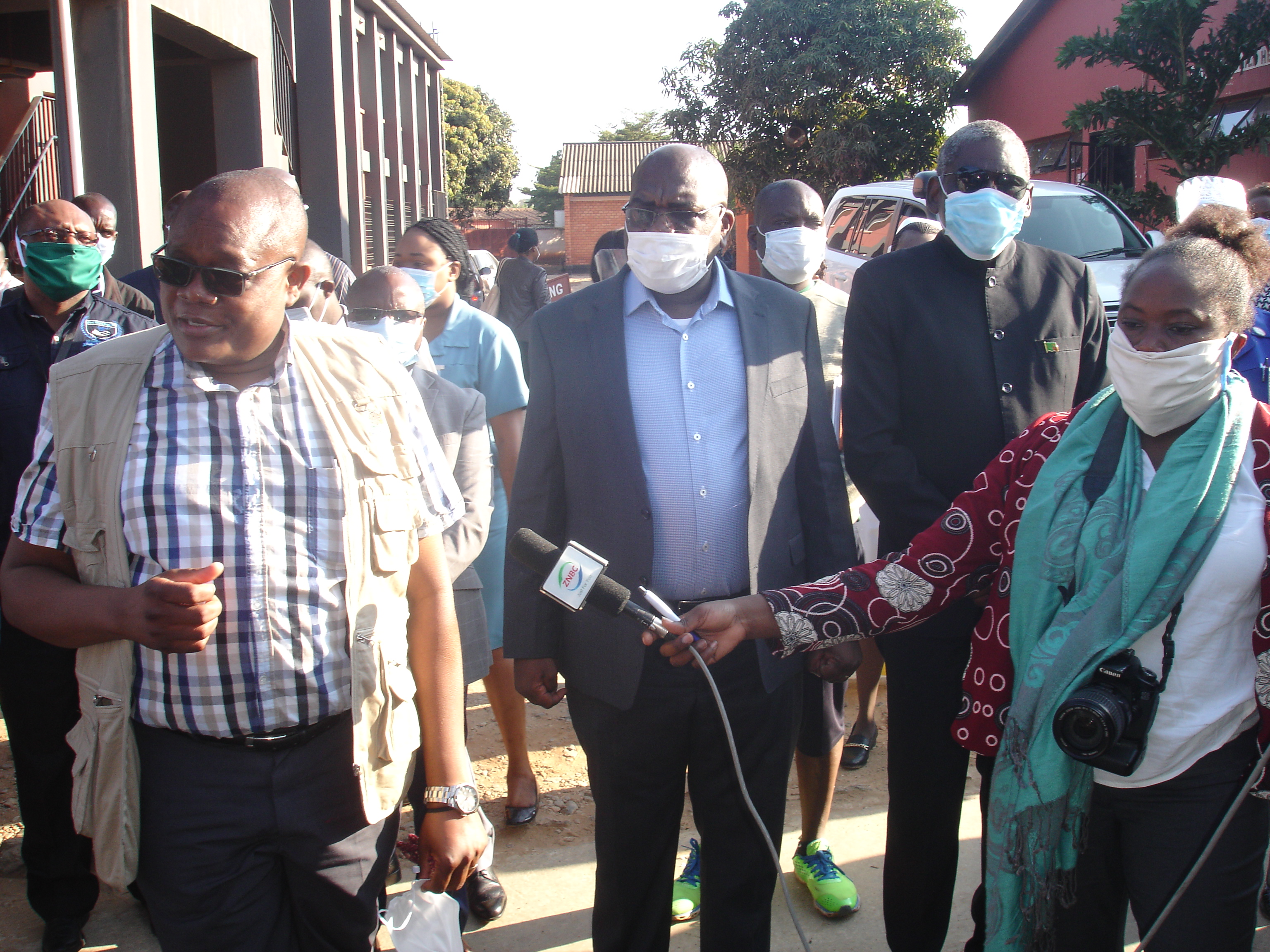“Communication Specialist Kelvin Chisanga says ‘ZAMBIA’S economic landscape’ needs structural re-modelling!”
Notice: Undefined index: catFilterList in /home/zambi/public_html/wp-content/plugins/wp-likes/api.php on line 243
By Kelvin Chisanga
Communication Specialist
Sunday 17th May, 2020
ZAMBIA’S economic landscape needs structural re-modelling!
There are strong predictions and general feelings that inflation will not drop within the stipulated corridor policy blankets, as we are currently seeing an increase on prices in a number of commodities especially essential goods and services following the surge witnessed on the cost of forex value, as novel coronavirus is taking a serious economic toll globally.
We are likely to witness a sustained upswing in inflation rate hovering around 15% or over to 16.9%, even though hopes are quite there to see a small positive change considering that harvest is just around the corner, taking from the previous MPC sitting, the Committee had then set a projection that inflation may likely to strive a bit higher feeding on harvest, and this was seriously reviewed as a focused measure to mitigate the escalating level recorded negatively in the inflation rate in both the first quarter of 2020 and second quarter respectively.
However, the central bank was hopeful then that the impact of COVID 19 would not be extended to a certain limit but regarded it a serious economic shock to the nation, though a deep-introspective view on the socioeconomic effects in Africa was taken in full view of China imports into the continent, and the impact was never fully assessed or evaluated to a certain model of strategic economic thoughts, but was rather taken from the perspective of a global trade patterns since China has a huge manufacturing industry base sustaining the entire world.
The agriculture sector was seen in full picture as a model to help in cushioning the local economic impact and was since identified as a key modality tool in containing few national economic turbulences, agricultural outputs were then projected to boost local performances but alas, this will not help to sustain this expectation owing to a number of factors, as the current economic fundamentals on the domestic market do not warrant due to low outturns observed from both exportation and importation processes amidst regional lockdowns.
The net supply of foreign currency has tremendously been decreased this year compared to the similar period in the previous consecutive years, the mining sector has literally slowed down in contributing huge sums of substantial supply of the US dollars on the local market, owing to the sharp change of international market patterns following the global pandemic of Coronavirus.
This week on Wednesday, the 20th of May the country’s apex bank, Bank of Zambia will be making some focus reviews that will be in their media pronouncements, the committee will be sitting for MPC meetings from tomorrow 18th and will run through up to the 19th May slated on Tuesday, as usual this meeting is made up prior to media briefing.

Ministry of Health (MoH) Permanent Secretary (PS) for Administration Dr. Kennedy Malama with Health Minister Dr. Chitalu Chilufya with Local Government Minister Dr. Charles Romel Banda at Chilenje Level 1 Hospital Monday 20 April 2020 Kwilanzi News Zambia Kwilanzi New Zambia
From the perspective of things, the committee will touch on a number of economic aspects and will drive through policy reviews on a number of national matters pointing out to current economic challenges, devising some modalities on the foreign net supply, tackling the COVID 19 economic shocks, seeking ways and means of curbing escalating inflation rates and imploring methods of boosting the performance of local economic actors especially the SMEs.
The central bank will also be reviewing onwards meditative measures that the fiscal policy stakeholders are taking during this era of COVID 19, the sitting would equally be taking a close check on the possibility of abolishing statutory Instruments number 142 of 1996, to allow setting up of flexibility terms on loan undertakings and facilitations by reclassifying all considerable modalities such as risk takings or tackling matters relating to the down-stream market players etc, this also does not leave out the game changer themselves, who are the financial service providers.
The proposed BOZ revised loan classification and provisioning rules, will be given out as an issuance of new directives to all FSPs, which will eventually act as a serious measuring tool for the betterment of the financial sector by assessing performance-based allocation of local financial market instruments, services and products through well-planned restructure models targeting the most critical sectors of the economy.
Though, I have few questions regarding the K10 Billion stimulus package offered to the commercial banks, as it does not speak into new models that need to be developed or revised as the centre of focus is driven from priority sectors earmarked in the seventh national development plan, this economic development drive was taken way before the advent of COVID 19, it will be somehow unfair riding on this preamble strategy plan, which I think will not even produce a fairly sound economic result if the assessment is literary half-baked.
The Bank of Zambia will seriously look at its objective roles, in seeing that the price increase attributed in the annual rate of inflation is critically tackled with quantifiable objectives to stabilize it.
However, in the wake of maintaining of price stability, BOZ is fully charged with bringing up some semblances of order to balance up trade benefits within the nation, this should be seen by introducing or allowing lower interest cap and revising FSPs loan framework to comfortably accommodate the SME sector.

Economics Association of Zambia (EAZ) President DR Lubinda Haabazoka with Bank of Zambia (BoZ) Governor Dr. Denny Kalyalya and Deputy Governor Operations,Dr. Bwalya Ng’andu
Over the K10 billion, I think there is a strong need for the Bank of Zambia in its affirmative sense, to clearly state on how the final consumers in the broader market would be positioned on the issues of interests, even though BOZ is just putting a plain and clear warning message cited that they will use their regulations in accordance to section 2. 4 if any FSP defiles the rules.
Therefore, the central bank will be in order if its censors an uniform requirement within the banking sector so that none of these financial banks or non FSPs do not over rate their loan requirements, though there are non-performing loans on record today.
Zambia’s inflation is projected to continue being on the upward trajectory, setting its movements away from the target range, a situation which will be seen in the medium-term to a long term with price effects.
Article by: Kelvin Chisanga
Communication Specialist
Issued Date: Sunday 17th May, 2020

Communication Specialist Kelvin Chisanga says ‘ZAMBIA’S economic landscape’ needs structural re-modelling!




















